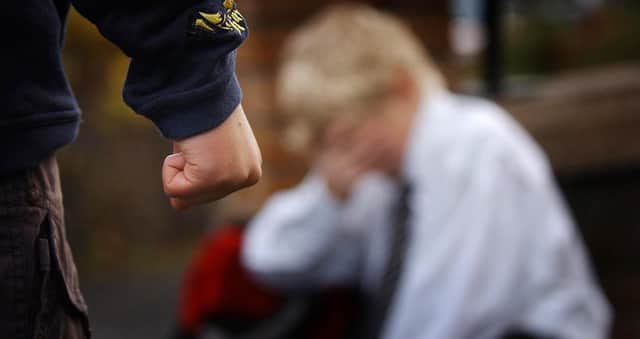Greenwich pupils excluded more than a dozen times for bullying


Schools in Greenwich excluded pupils for bullying on more than a dozen occasions in just one year, figures reveal.
Ahead of Anti-Bullying Week, which begins on November 15, children's charities warn that though the number of exclusions fell across England during the coronavirus pandemic, the issue is "stubbornly persistent".
Advertisement
Hide AdAdvertisement
Hide AdDepartment for Education figures show Greenwich schools excluded students 16 times for bullying in the 2019-20 academic year – all of which were temporary exclusions.
This was a decrease on the year before, when there were 17.
Across England, 2,438 permanent or temporary suspensions for bullying were recorded in 2019-20
This was down from 3,510 the year before and the lowest number since comparable records began in 2005-06.
The Anti-Bullying Alliance, which coordinates Anti-Bullying Week every year, said the number of exclusions fell dramatically in 2020 as schools shut during the pandemic.
Advertisement
Hide AdAdvertisement
Hide AdHowever, Martha Evans, director of the organisation, said this doesn't mean bullying disappeared from schools, with a survey it carried out this year indicating a rise in cyberbullying.
She added: “Sadly, we estimate that at least one child in every classroom is experiencing frequent bullying behaviour from others.
"We know this experience can affect children’s mental health and have a lingering effect well into adulthood.
“But we must also remember that the majority of children know that bullying is never okay, and they want positive and respectful relationships with their friends and classmates."
Advertisement
Hide AdAdvertisement
Hide AdThe vast majority of temporary and permanent exclusions in England occur in secondary schools.
All the exclusions in Greenwich in 2019-20 occurred in state-funded secondary schools, with none in special or primary schools.
Childline said the pandemic changed the "landscape of bullying" with much of it now occurring online.
Alex Gray, head of volunteer operations at the charity, added: “We know bullying can have a profound impact on children and for some it can cause them to develop mental health problems like depression and anxiety.
Advertisement
Hide AdAdvertisement
Hide Ad“For others it can hinder their friendships as they don’t feel accepted by their peers, it can make them wary and suspicious of others and for some it can affect their performance at school."
The Department for Education said permanent exclusions should only be used as a last resort, and should not mean an exclusion from education.
A spokeswoman added: “Bullying is never acceptable in any form, and we must all take a stand against bullying to create a safe place for all children in the classroom and online.
“We are supporting schools to tackle all forms of bullying, including through providing funding to anti-bullying charities and ongoing work to improve behaviour."